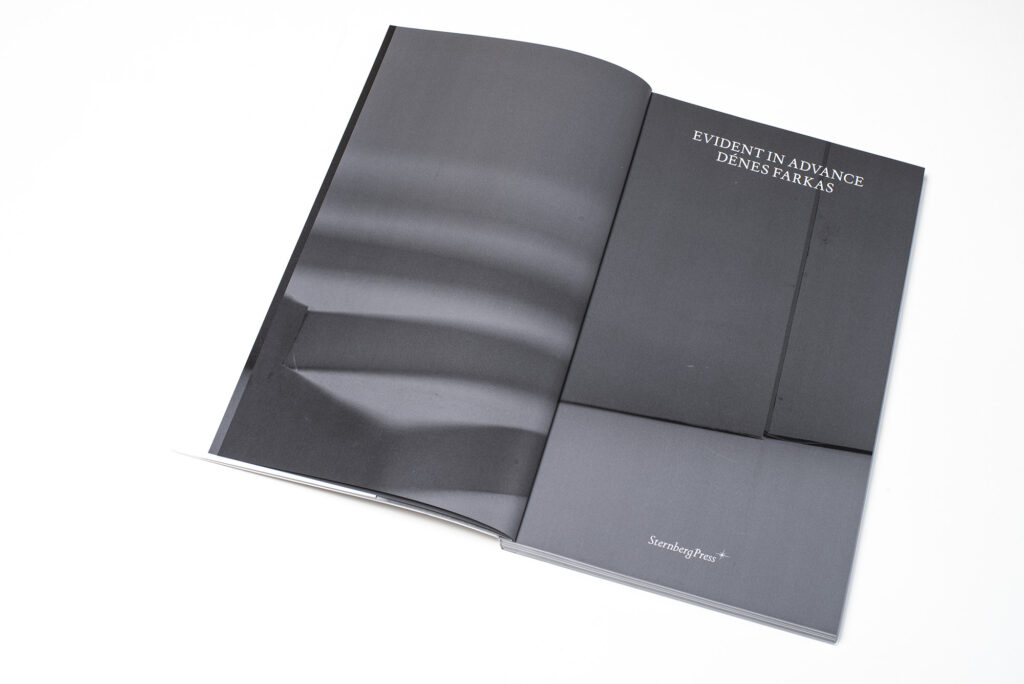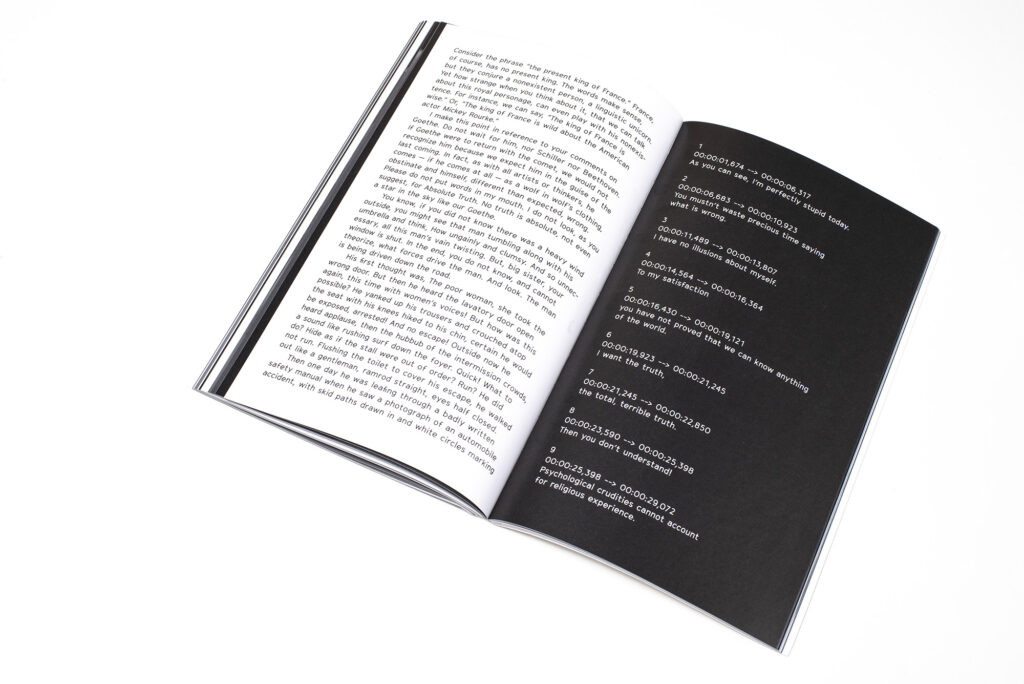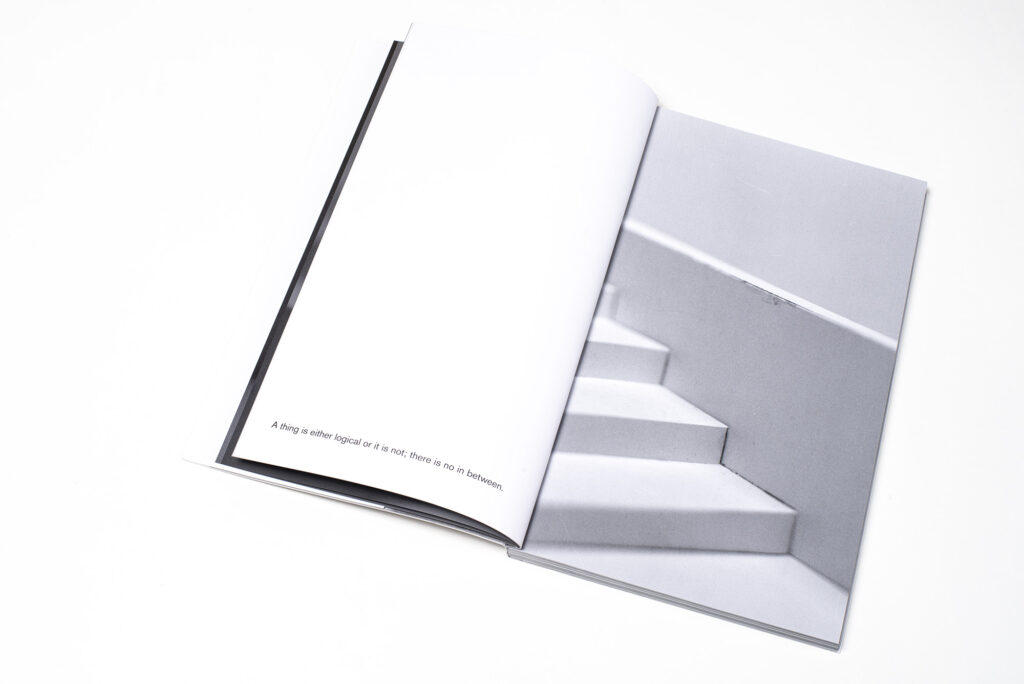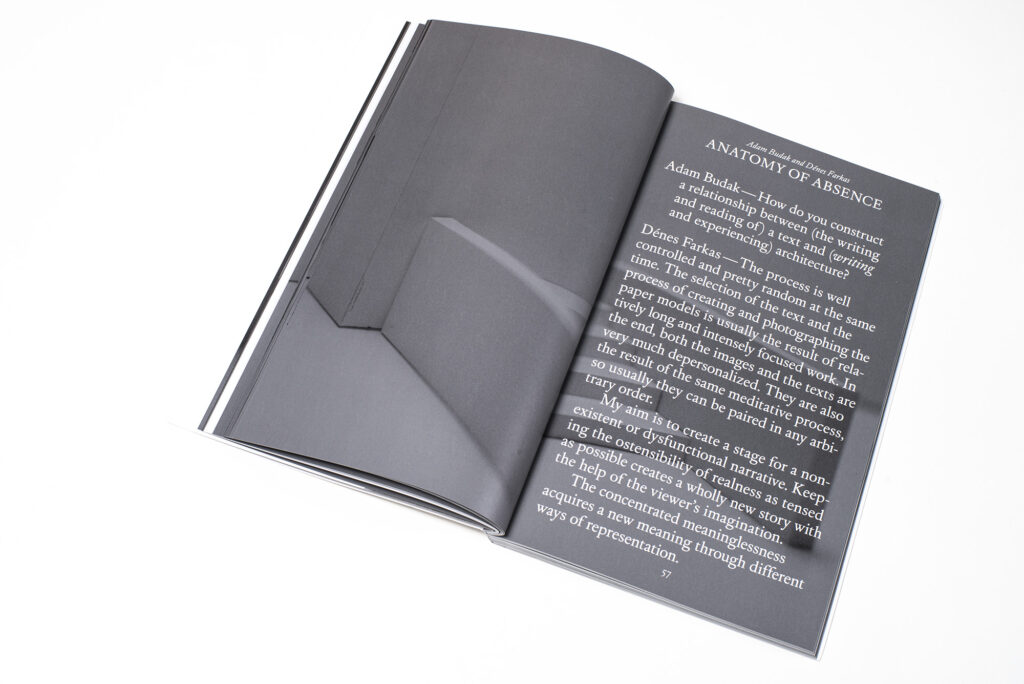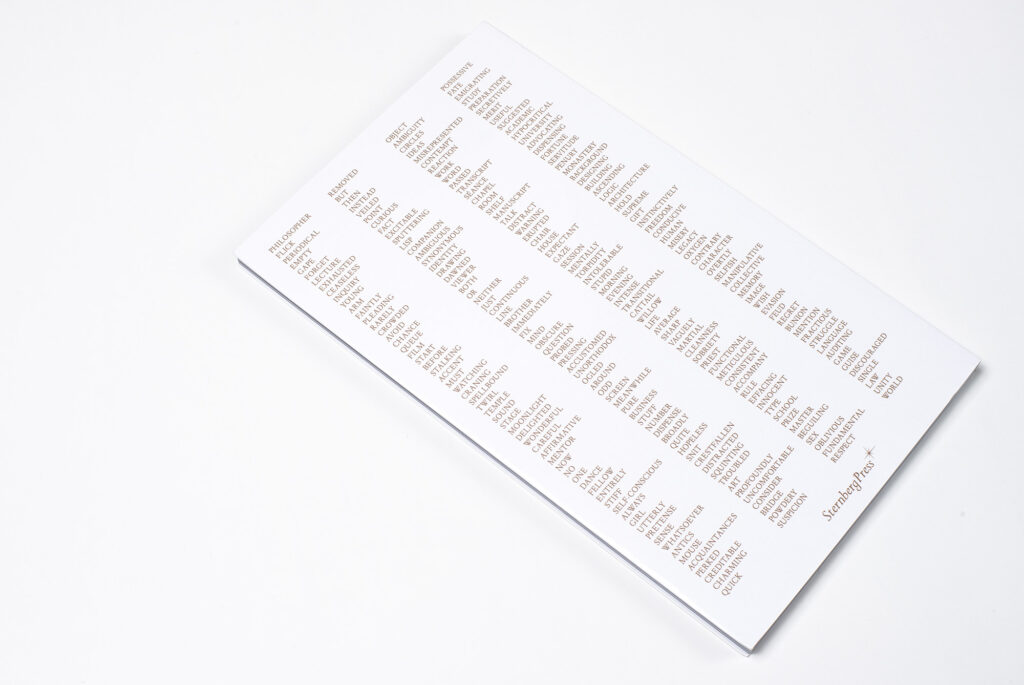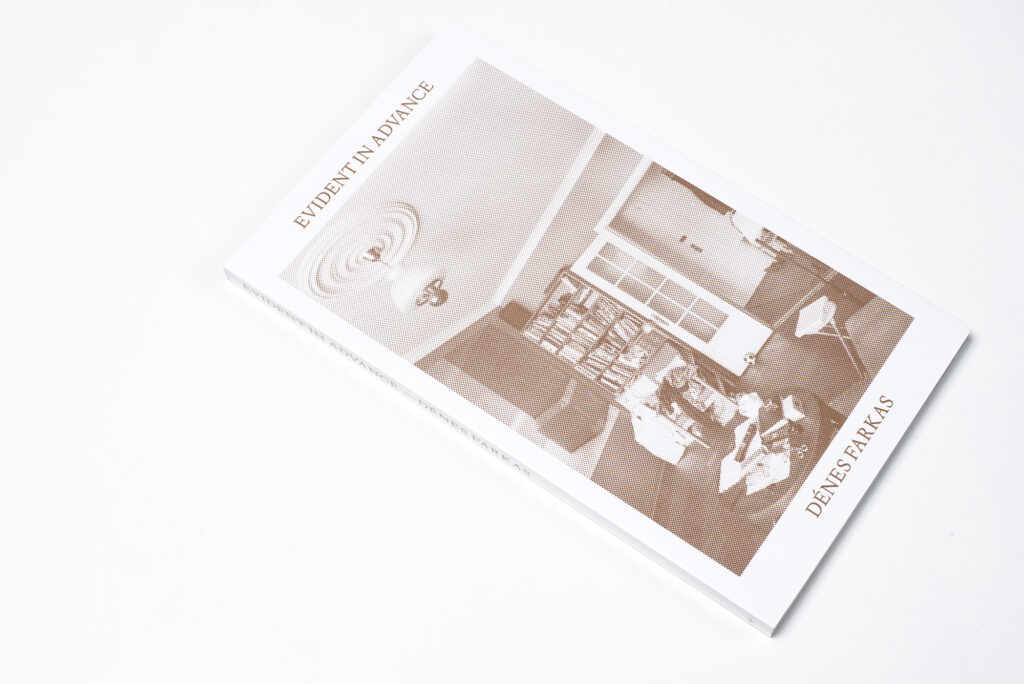
The book accompanies the Estonian Pavilion at the 55th Venice biennale – Dénes Farkas “Evident in Advance”.
“If I don’t trust this evidence why should I trust any evidence?,” Wittgenstein asked himself in “On Certainty.” Dénes Farkas’s work is haunted by a drama of not delivering a trust to a singular evidence of this world: a world as he found it. Hysterically reproduced paper maquettes of choreographed architecture, imprisoned within a clumsy, photographic frame, are abstract shelters for imagined and unspoken texts. Words are characters in performance of a world as a text.
As a proposition, Farkas’s exhibition and publication for the Estonian Pavilion of the 55th Venice Biennale in 2013 is “an absent book” and yet “the book to come.” The installation is a piece of spatial, rhythmical writing; a quintet of interiors woven of autonomous though intertwined, poetic fragments of quasi-domestic setting: a library, a garden, an absent cinema, a spatial book, an obsession chamber (a locus of deranged architect and non-writer). “A story? No. No stories, never again,” Farkas repeats after Maurice Blanchot, while rehearsing his art of ultimate denial and rejection.
The introduction is written by the commissioner of the pavilion Maria Arusoo, essays by Maurice Blanchot, Adriana Cavarero, Bruce Duffy, Markus Miessen and Daniele Monticelli.
